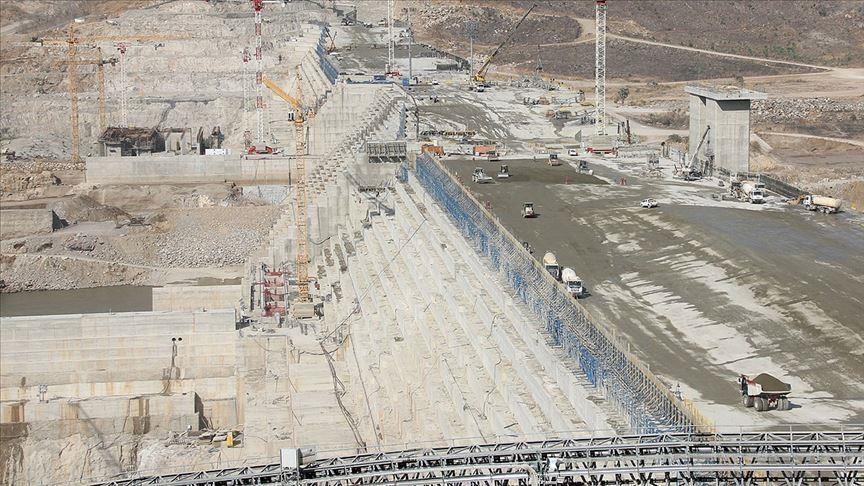Horn of African nation plans to go ahead with $5B hydro dam filling despite objections from downstream countries
Ethiopia on Tuesday said it is futile to respond to each threat posed by the downstream countries concerning the ongoing construction of the Grand Ethiopian Renaissance Dam (GERD).
During a weekly press briefing, Ethiopia’s Foreign Ministry spokesman Ambassador Dina Mufti said: “It won’t be wise to respond to every threat coming from Sudan. Threats coming from the downstream countries have never been new. They threatened to even bomb the dam in the past.”
Sudanese Irrigation Minister Yasser Abbas last Friday said that if Ethiopia was to go ahead with the second-year filling of the dam, it would bring the matter to the UN Security Council.
Sudan and Egypt have been calling for a “comprehensive agreement” before the filling, while Ethiopia maintains a guideline would be enough as provided for in the 2015 Declaration of Principles that gave Ethiopia the prerogative to carry on with the construction of the GERD while participating in a tripartite dialogue.
“Failure to reach an agreement paves the way for raising a complaint to the Security Council, considering that the GERD poses a real threat to regional peace and security,” Abbas said, adding that Sudan would also sue the GERD contractor, the globally renowned Salini Costruttori.
Ethiopia began construction of its $5-billion hydro dam on the Nile in 2011 to boost the nation’s electricity generation and alleviate poverty. More than 60% of Ethiopia’s 110 million population live in the dark without electricity.
Egypt and Sudan say they fear the dam would reduce the flow of water downstream and affect their “historical water rights” according to a water-sharing treaty the two countries signed in 1959 that gave Egypt 55.5 billion cubic meters (bcm) water and Sudan 18.5 bcm, while excluding Ethiopia which never ratified this bilateral agreement between Sudan and Egypt.
Ethiopia maintains that it direly needs electricity for its national development to provide much-needed energy to homes and local industries as well as for exports to neighboring countries.
Last month, trilateral talks among the countries on the rules and guidelines of the filling and annual operation of the dam under the auspices of the African Union did not succeed. The two sticking points were about the amount of water Ethiopia should release downstream from the 70-bcm capacity reservoir during drought periods as well as mechanisms to resolve future disputes.
Dina said the two downstream countries of Egypt and Sudan have been active to take the talks out of the African Union.








































admin in: How the Muslim Brotherhood betrayed Saudi Arabia?
Great article with insight ...
https://www.viagrapascherfr.com/achat-sildenafil-pfizer-tarif/ in: Cross-region cooperation between anti-terrorism agencies needed
Hello there, just became aware of your blog through Google, and found ...